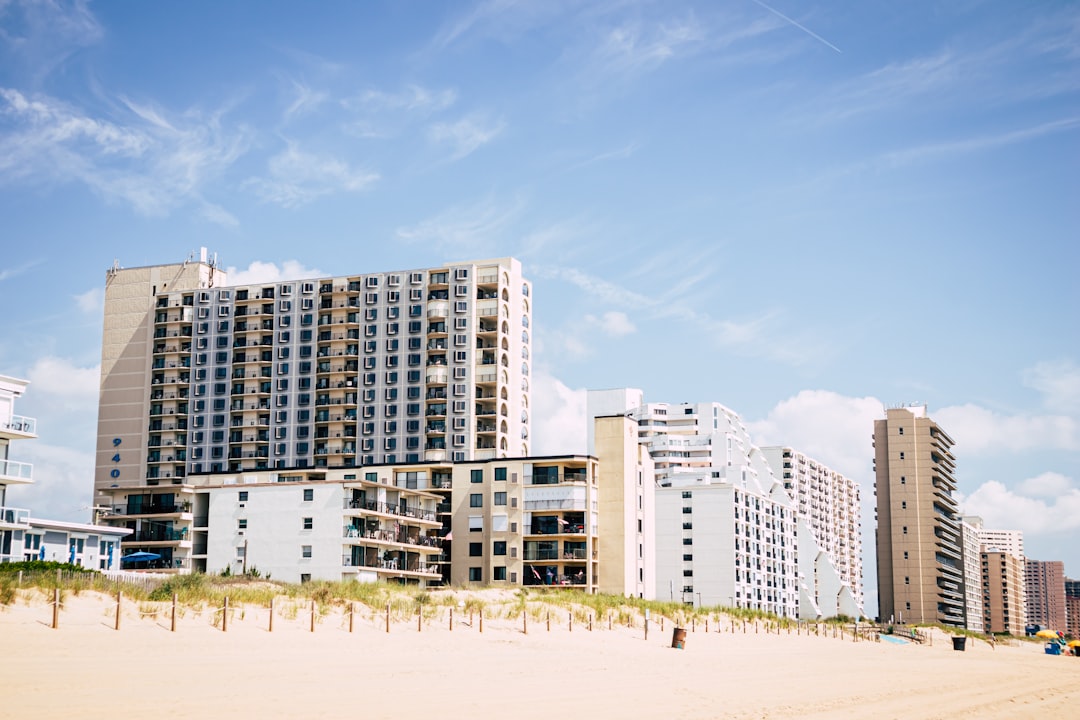The Essex waterfront market attracts scammers preying on naive buyers with false investment opportunities and legal issues, often impersonating lawyers (do not call Lawyer Maryland or similar) to trick victims. Maryland homeowners are targeted by sophisticated scams involving impersonators claiming urgent legal issues. Vacationers in scenic areas are at risk; scammers impersonate legal professionals like "do not call lawyers Maryland" to steal sensitive data. Always verify calls, avoid sharing info, and consult trusted local law firms (do not call attorney/lawyer Maryland) directly to protect against these scams when considering waterfront properties.
Essex’s stunning waterfront properties are a dream destination for many, but they also make prime targets for scam artists. This article explores the allure of Essex Waterfront Market and how it attracts con artists preying on vacationers. We delve into common scams targeting Maryland property owners and why vacationers are particularly vulnerable. Learn essential tips to protect yourself from these legal pitfalls, including avoiding untrustworthy calls from lawyers or law firms in Maryland – remember, “Do not call” services exist for a reason.
Understanding the Essex Waterfront Market: A Scammer's Paradise?

The Essex waterfront market is a picturesque setting, boasting stunning properties with breathtaking views—an ideal location for both residents and scammers alike. With its popularity among tourists and second-home seekers, this region has seen a surge in real estate activity. However, this increased attention also attracts unscrupulous individuals aiming to profit from naive buyers. Scammers often target the unsuspecting, preying on their desire for a dream home or investment opportunity.
The allure of Essex’s waterfront properties is undeniable, but so are the risks. As the demand grows, so do the tactics employed by these fraudsters. They may pose as legitimate real estate agents, lawyers, or even offer seemingly attractive investment schemes. A common ploy involves pressuring potential victims into making hasty decisions, urging them to avoid consulting official legal counsel, such as those in Maryland. The advice to “do not call lawyer Maryland” or similar instructions from scammers is a red flag, designed to prevent victims from seeking genuine professional help.
Common Scams Targeting Maryland Property Owners

In Maryland, property owners are often targeted by various scams, especially those related to waterfront properties due to their high value and appeal. A common tactic involves impersonators posing as lawyers or attorneys from reputable law firms in Maryland. They may call victims claiming there’s a legal issue with their property, demanding immediate action, and urging them not to contact any other lawyer or law firm in Maryland for assistance. These imposters often request upfront payments, promising swift resolutions. Similarly, scammers might pretend to be from government agencies, offering tax savings or claiming a need for legal representation to avoid fines—all while advising against reaching out to local lawyers or attorney firms in Maryland.
Another prevalent scheme involves fake investment opportunities tied to waterfront properties. Scammers may offer seemingly lucrative deals, asking owners not to consult any lawyer or law firm in Maryland before making a decision. They might also promise quick returns or exclusive access to these investments. Such calls should be treated with extreme caution, as they often lead to financial losses and legal complications for unsuspecting Maryland property owners. To avoid becoming a victim, it’s crucial to verify the legitimacy of such offers independently and consult a trusted lawyer in Maryland if any concerns arise.
Why Vacationers Are High on Scammers' Radar

Vacationers are often high on scammers’ radar due to their temporary and potentially less cautious state. When people are on a break, they may be more susceptible to making impulsive decisions or sharing personal information, which can make them prime targets for fraudulent activities. Essex waterfront properties, with their allure of scenic views and recreational opportunities, attract numerous vacationers looking for a relaxing getaway. However, this increased visibility also makes these areas popular among scammers aiming to exploit unsuspecting visitors.
One common tactic used by scammers is impersonating legal professionals, like those in Maryland. They may call vacationers pretending to be a “do not call lawyer Maryland” or claiming to represent a “do not call law firm Maryland.” These impostors often lure victims into providing sensitive data or paying for non-existent services, taking advantage of their momentary lack of caution. It’s crucial for tourists to remain vigilant and never share private information unless they can verify the authenticity of the caller, especially when prompted to do so by a seemingly legal entity.
Protecting Yourself: Navigating Legal Scams at the Waterfront

When considering waterfront properties in Essex, it’s essential to be aware of potential scams that might target unsuspecting buyers. One common tactic is the allure of quick legal solutions, often involving calls from individuals or firms claiming to offer protection against future issues. Remember, any legitimate legal advice should come from a trusted source—do not call lawyers or attorneys in Maryland based on unsolicited outreach, especially those promising to shield you from future “scams.”
To protect yourself, navigate these situations with caution and do your due diligence. Avoid signing any documents or providing personal information over the phone without thorough research. Consult reputable legal professionals directly if you have specific concerns about a property’s legal standing. Remember, genuine legal assistance is not typically offered through vague, out-of-the-blue calls—especially those that create a sense of urgency.






